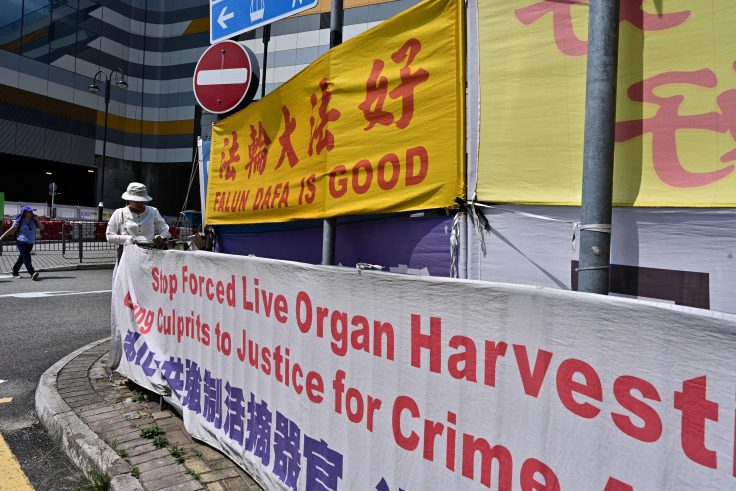July 20 marks 20 years of China cracking down on the practitioners of Falun Gong. The State Department's second Ministerial to Advance Religious Freedom was held this past week to coincide with the anniversary. A report from the Falun Dafa Information Center outlines the depredations believers have suffered.
The report, titled "20 Years of Persecution & Resilience," details how Falun Gong went from a fast-growing spiritual discipline with more than 70 million members in 1999 to an underground movement in China.
Violent targeting of the Falun Gong began on July 20, 1999. The report says the "size of [Falun Gong's] following made communist leaders fearful of losing control of the people's hearts and minds. Its guiding principles were not compatible with communist ideology, which the Party had forcibly imposed on the Chinese people during the Cultural Revolution. In addition, certain communist officials saw Falun Gong as an easy target and used its vilification as a tool for their own political advancement."
Images in the report document brutal scenes of persecution: An artist named Zhao Ye detained for handing out Falun Gong CDs was tortured with high-voltage electric batons at a forced-labor camp. A man named Tan Yongjie had a red-hot iron rod pressed into his legs over a dozen times. Another image shows practitioners creating flyers to expose state-media misinformation about Falun Gong.
The report outlines the various forms of persecution used by the government.
"For the past 20 years, practitioners and their families have been under constant surveillance," according to the report. "Phones are tapped and computers traced. Having plainclothes policemen surveil their every move remains a common experience for many practitioners in China."
Those who are captured are usually put in forced-labor camps, where they work 18-hour shifts and suffer torture, "such as shocking with electric batons, burning with irons, tying the body in painful positions for days, force-feeding saline solutions or human waste through a plastic tube inserted in the nose, and prying out fingernails with bamboo pieces."
The report states that "millions [of Falun Gong] have been abducted and held in labor camps, prisons, makeshift detention centers, or 'black jails' (a network of extralegal detention centers where individuals are held without trial)."
The government also employs forced indoctrination and brainwashing in its persecution efforts.
"Brainwashing centers pumped visual and audio propaganda into the minds of practitioners for days on end until they could no longer tell their own thoughts from those manufactured by the state," the report says.
Evidence also indicates Falun Gong and other prisoners of conscience have been killed for the sake of harvesting their organs.
"A growing body of evidence indicates that Chinese hospitals have been colluding with the country's police in a nefarious scheme known as 'organ harvesting.' They hold prisoners of conscience against their will, often illegally, examine them for organ compatibility, and then systematically remove their healthy organs to supply transplants for a booming organ transplantation industry. Their bodies are cremated, according to eyewitnesses. The vast majority of prisoners of conscience targeted in this manner are believed to be Falun Gong practitioners—possibly running into tens of thousands annually," the report states.
Initial reports of organ harvesting emerged in 2006.
The most recent State Department report on religious freedom notes that a tribunal set up by the International Coalition to End Transplant Abuse in China declared it was "certain—unanimously, and sure beyond reasonable doubt—that in China, forced organ harvesting from prisoners of conscience has been practiced for a substantial period of time, involving a very substantial number of victims."
In an effort to counter government propaganda and to publicize their mistreatment, Falun Gong practitioners have set up underground printing houses throughout the country, with volunteers secretly distributing literature. There are an estimated 200,000 or more printing houses in existence today.
Former congressman Frank Wolf, a longtime advocate for religious freedom, called the situation for religious liberty in China "the worst it's been in 30 years" while speaking on a panel at the State Department's summit on Tuesday.
"I think it is worse now than at any time than I've been dealing with these issues," Wolf added, pointing to China's persecution of Christians, Tibetans, Uighurs, and Falun Gong.
In a statement to the Washington Free Beacon, Gayle Manchin, vice chair of the U.S. Commission on International Religious Freedom, said China's government needs to be held accountable.
